Microneedling For Acne Scars: Benefits & How It Works
A minimally invasive and safe medical procedure to manage a variety of skin issues.
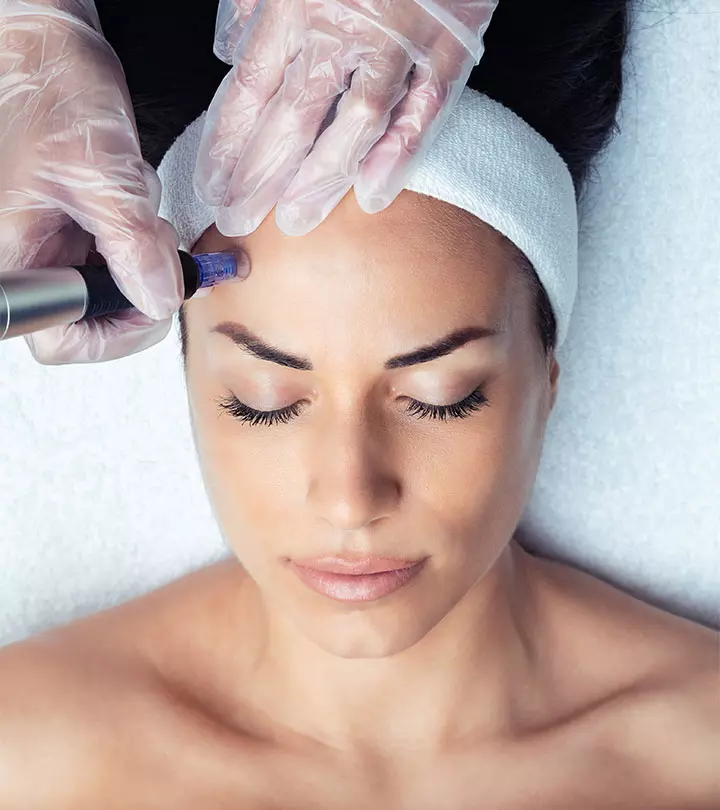
Image: Shutterstock
We are all aware that acne is one of the most common skin conditions that frequently results in scarring. If you have you run out of options and are confused about what to do, you need to give microneedling a try. Microneedling is an in-office procedure carried out under the care of a doctor. Keep scrolling to learn more about it!
In This Article
What Is Microneedling? How Does It Work For Acne?
Microneedling is a minimally invasive treatment that removes the top layer of the skin. It helps minimize the appearance of acne scars by promoting collagen formation, which plumps the scar site and makes it appear smoother.
Microneedling is done with a device called a dermaroller, which contains small needles of different sizes. The device creates micro-wounds on the skin. This prompts the skin to produce collagen, promote cell turnover, and replace the scar tissue with healthy tissue (1).
 Did You Know?
Did You Know?However, there are many aspects to consider if you want to understand what is microneedling, such as its benefits, side effects, and more. Assessing everything is crucial to making an informed decision. Here are the benefits of using it for acne scars.
Key Takeaways
- Microneedling is a cosmetic procedure that helps improve the appearance of acne scars and dents.
- It is recommended to do it under medical supervision after consulting a dermatologist about your skin type and concerns.
- Fast, painless, and cost-effective, microneedling may lead to minor redness or rashes, which tend to disappear soon after.
Benefits Of Microneedling
1. It Is Quick, Comfortable, And Cost-effective
Microneedling is a quick, comfortable, minimally invasive, and safe treatment for acne scarring and other skin issues like fine lines, large pores, and wrinkles (3). When performed under the supervision of a doctor, microneedling does not cause many side effects.
2. Minimizes Dark Spots And Hyperpigmentation
Microneedling can minimize hyperpigmentation, dark spots, and patches to even out your skin tone and make it bright and clear (4).
Microneedling is usually performed under the supervision of a doctor. However, you will also find dermarolling devices on the market to perform microneedling at home. This is not recommended at all. However, if you want to try, here is how to do it.
How To Do Microneedling At Home
- Disinfect The Dermaroller: Soak the roller in 70% isopropyl alcohol solution for at least 10-15 minutes before using it on your skin.
- Cleanse Your Face: Wash your face with a mild cleanser and pat it dry. If you cannot tolerate pain, you may also apply a mild numbing cream.
- Use The Dermaroller: Roll the device 2-3 times vertically or horizontally on the affected area (avoid the eye area). Roll only in one direction and lift the roller before rolling again. Cover the entire section.
- Wash Your Face: Clean your face only with water and gently pat it dry.
- Sanitize The Device: Wash the device with warm water and soap and disinfect it again (follow the first step).
 Quick Tip
Quick TipThough microneedling is done with a dermaroller at home, they are not the same. Check out the next section to learn more about the differences between both processes.
Dermarolling Vs. Microneedling
Dermarolling is a DIY method that you can try anywhere, while microneedling is done by professionals in a salon or spa. A trained aesthetician or medical professional uses a microneedling device with tiny needles tailored for your skin. Dermarollers have fixed needles on a roller, while microneedling uses a micro-pen with sterile needles creating micro-injuries with gentle vibrations. Dermarolling mostly impacts only the skin’s surface and aiding the absorption of products, but microneedling goes slightly deeper, triggering the body’s healing responses for better results.
Also, performing microneedling at home is not recommended as it may cause undesired effects. Read on to know more about it.
Side Effects Of Microneedling
Microneedling may cause initial side effects like:
- Skin irritation
- Redness
- Bleeding
- Bruising
Follow the doctor’s instructions to care for your skin after the procedure. The minor side effects usually go away in a few days. However, if you try it at home, or if microneedling is performed by an inexperienced person, it may cause serious side effects like:
- Discoloration
- Hyperpigmentation
- Scarring
- Peeling
- Infection
If you experience any of these side effects, consult a dermatologist. Here are the answers to some common questions regarding microneedling.
How Long Does It Take To Show Results?
You can expect visible results between four to six weeks after treatment.
Morgan Reed Parlett, a YouTuber, shared her experience with microneedling for acne scar treatment. She said, “It’s not like excruciating pain, it just feels, it literally feels like sunburn. It’s super tight, it feels dry, and I haven’t touched it. I’m trying not to touch my face at all because I don’t want to introduce any bacteria (i).” Later, she added, “Overall, I had an awesome experience, I am definitely gonna have microneedling done again.”
How Many Microneedling Sessions Are Required For Acne Scars?
It depends on the severity of the scars. Usually, you may have to go for at least three to four sessions, as suggested by the dermatologist.
Microneedling is a minimally-invasive medical procedure that helps reduce scars. In this process, a device is used to create micro-wounds on your skin to promote collagen production and cell turnover and replace scar tissue with healthy tissue. It is quick, cost-effective, and safe. Depending on your scar and skin type, you may have to attend at least three to four sessions. Though you can do microneedling at home, it is best to visit a dermatologist and do it under their supervision. You might experience a few reactions soon after the procedure, but they will go away in some days. For enhanced results, you may consider RF microneedling, which combines traditional microneedling with radiofrequency energy to improve skin texture and stimulate deeper collagen production.
Frequently Asked Questions
Is microneedling better than botox?
This depends on the person’s needs. Both botox and microneedling are effective and safe treatments for all skin types. Botox is more effective on those looking to reduce crow’s feet and forehead lines. Microneedling addresses a wide range of issues like wrinkles, acne scars, fine lines, etc. Consult your doctor and understand which treatment is more suitable for your needs.
How long does microneedling last for acne scars?
The results of microneedling last four to six weeks for acne scars. Proper microneedling aftercare is also important to maintain optimal results and ensure the best outcome.
Can microneedling worsen acne scars?
No, microneedling does not worsen acne scars if it is properly administered by a medical professional.
Watch this informative video to explore the transformative power of microneedling process for acne scars. Learn about treatment options, advantages, and the potential to rejuvenate skin texture, offering hope for clearer skin.
Personal Experience: Source
StyleCraze's articles are interwoven with authentic personal narratives that provide depth and resonance to our content. Below are the sources of the personal accounts referenced in this article.
(i) MY FIRST MICRONEEDLING EXPERIENCE & WHAT TO EXPECT //ACNE SCAR TREATMENThttps://www.youtube.com/watch?v=wlXy0FBPDJs
References
Articles on StyleCraze are backed by verified information from peer-reviewed and academic research papers, reputed organizations, research institutions, and medical associations to ensure accuracy and relevance. Read our editorial policy to learn more.
- Microneedling Therapy in Atrophic Facial Scars: An Objective Assessment
https://www.ncbi.nlm.nih.gov/labs/pmc/articles/PMC2840919/ - Microneedling with Dermaroller
https://www.ncbi.nlm.nih.gov/pmc/articles/PMC2918341/ - Microneedling Therapy for Atrophic Acne Scars
https://www.ncbi.nlm.nih.gov/labs/pmc/articles/PMC4509584/ - Review of Applications of Microneedling in Dermatology
https://www.ncbi.nlm.nih.gov/labs/pmc/articles/PMC5556180/
Read full bio of Dr. Priya Gill
Read full bio of Monomita Chakraborty
Read full bio of Eshna Das
Read full bio of Swathi E





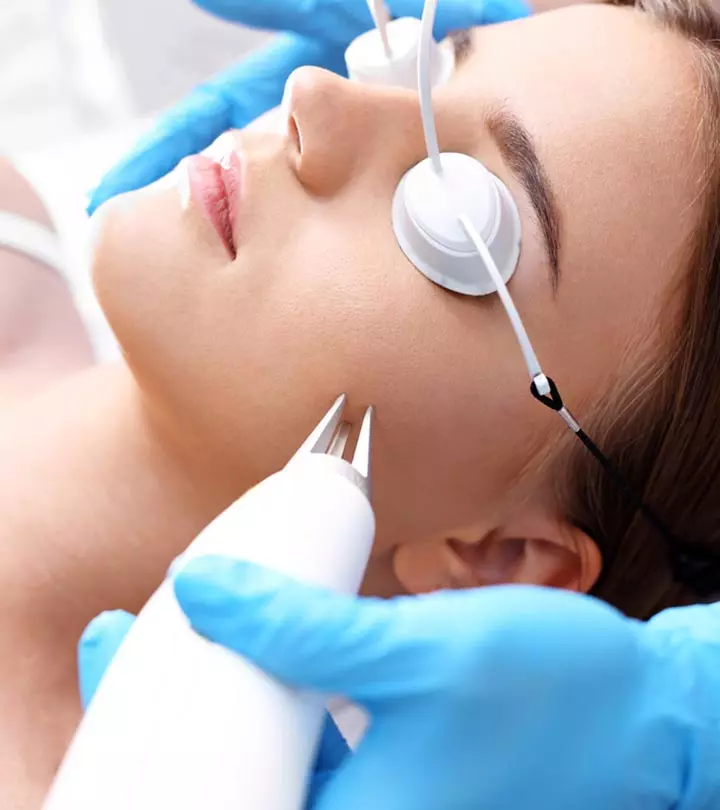
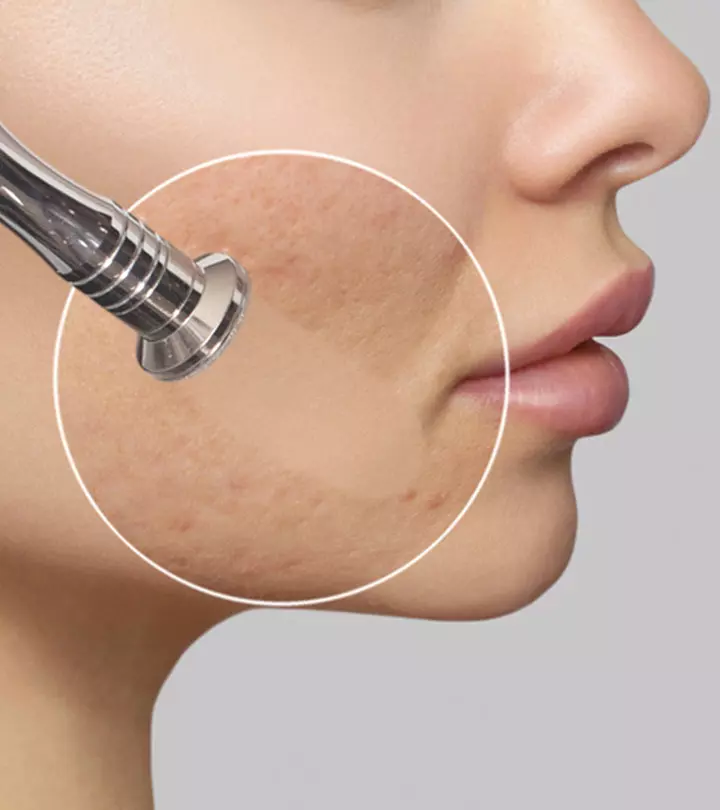
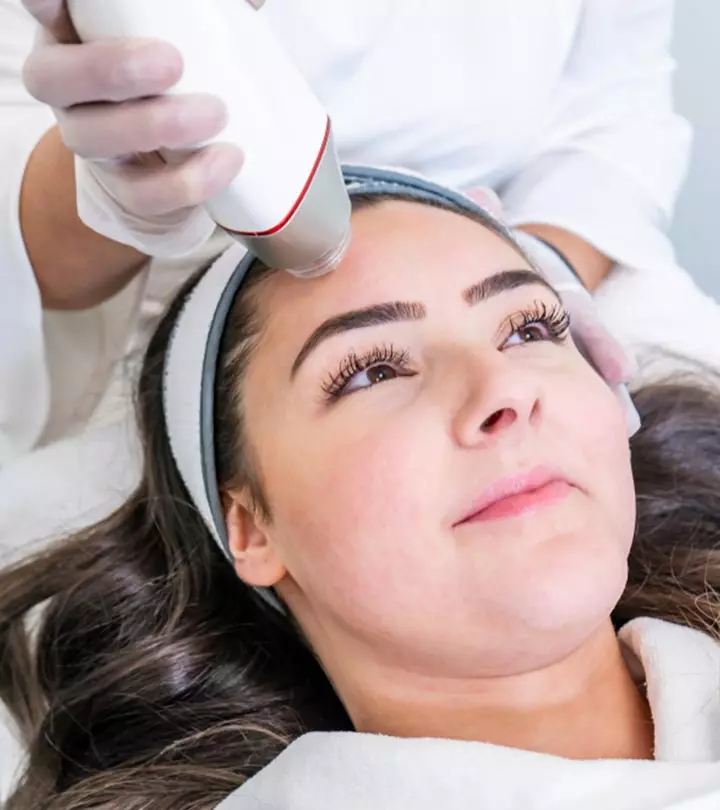
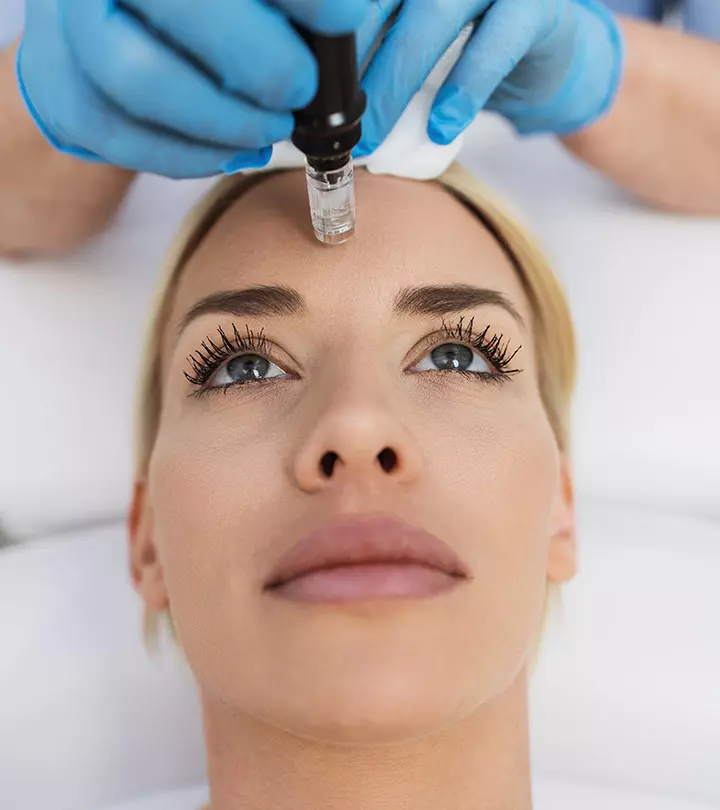
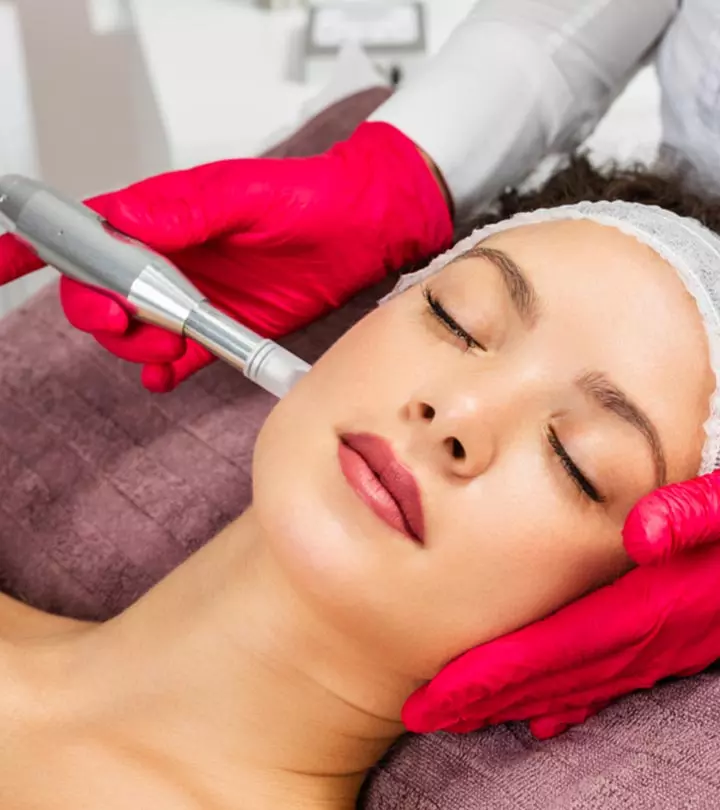
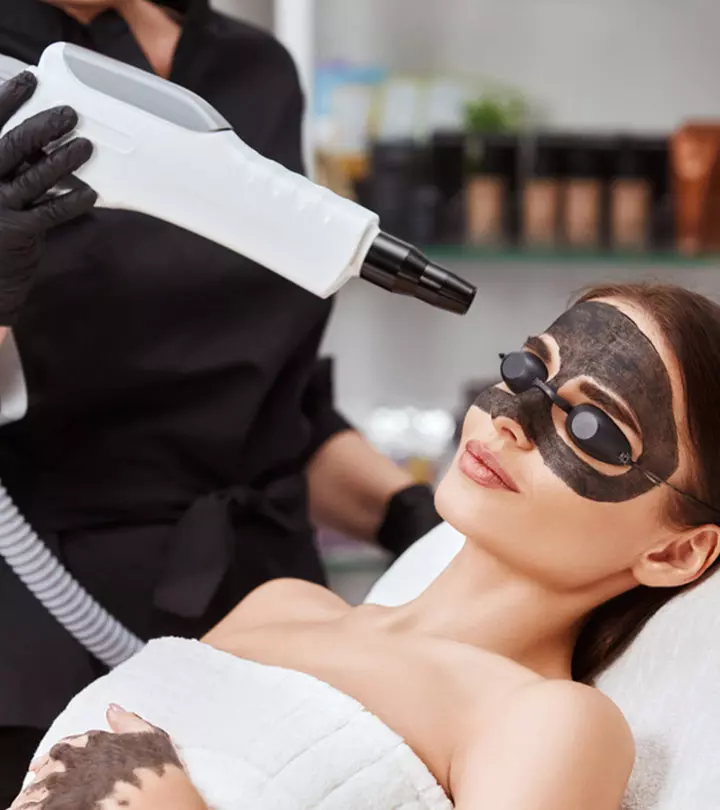
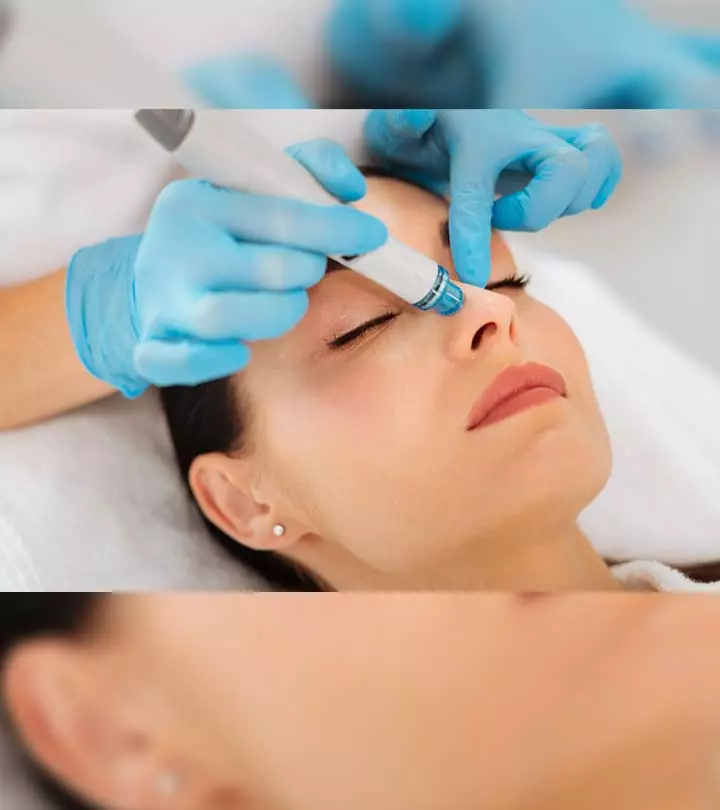
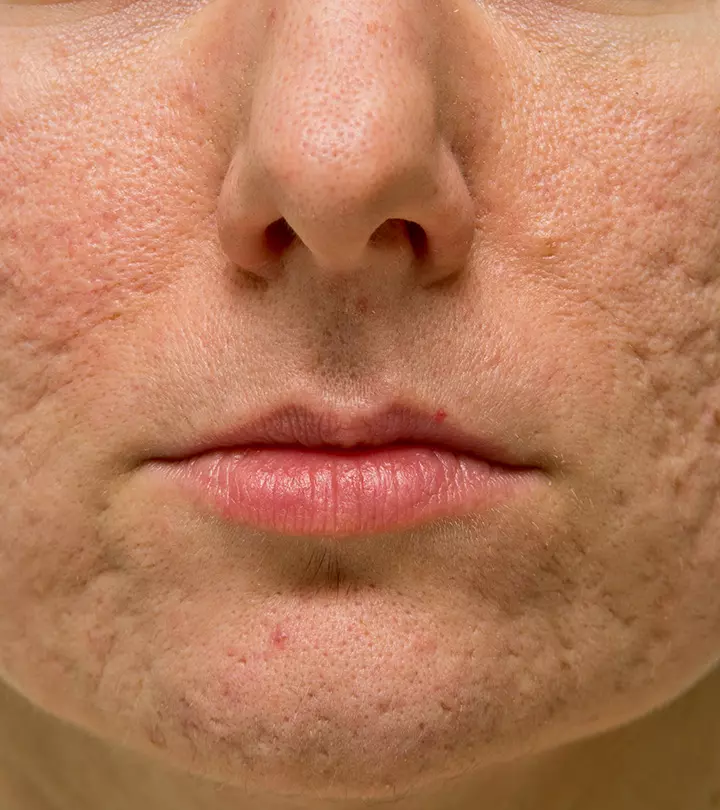
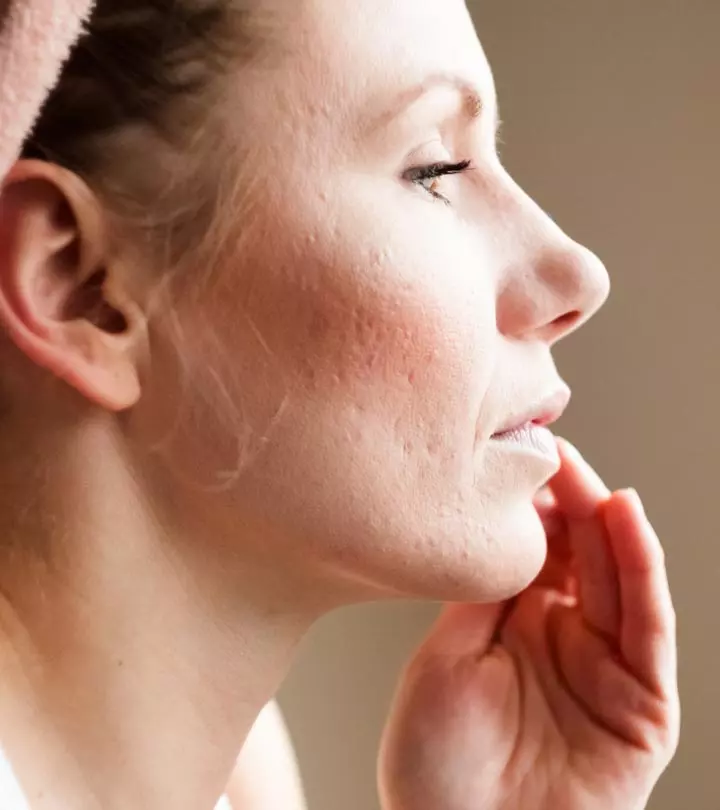

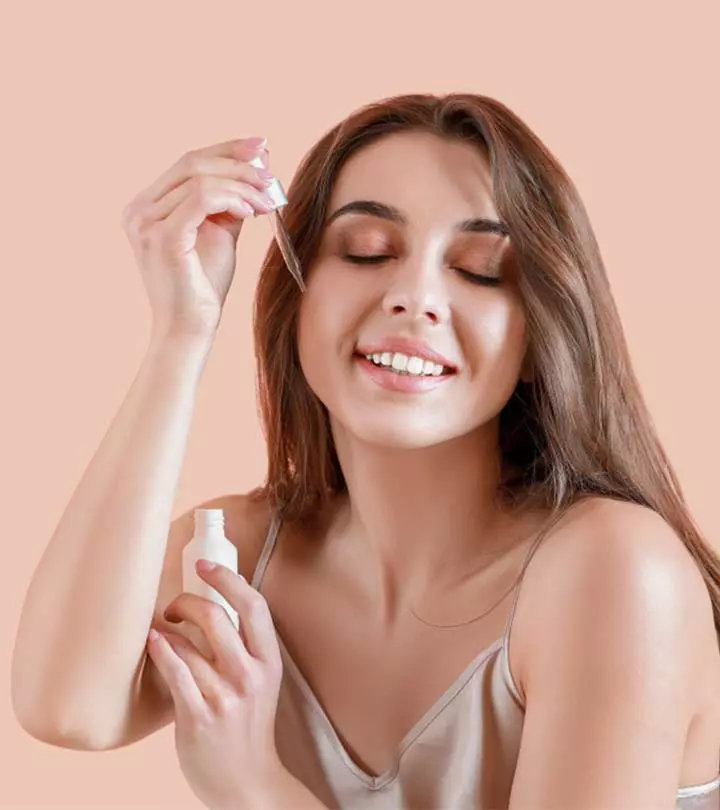


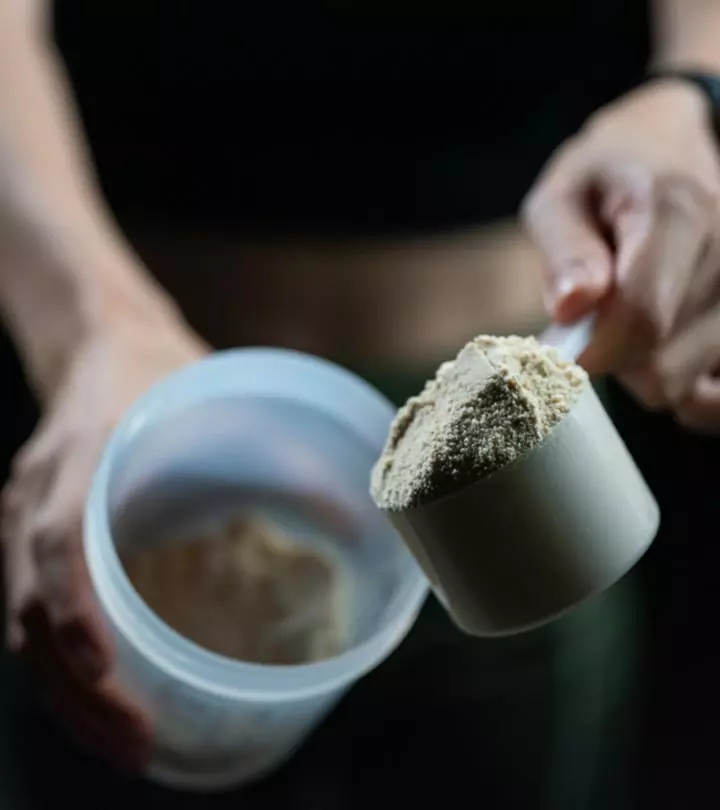
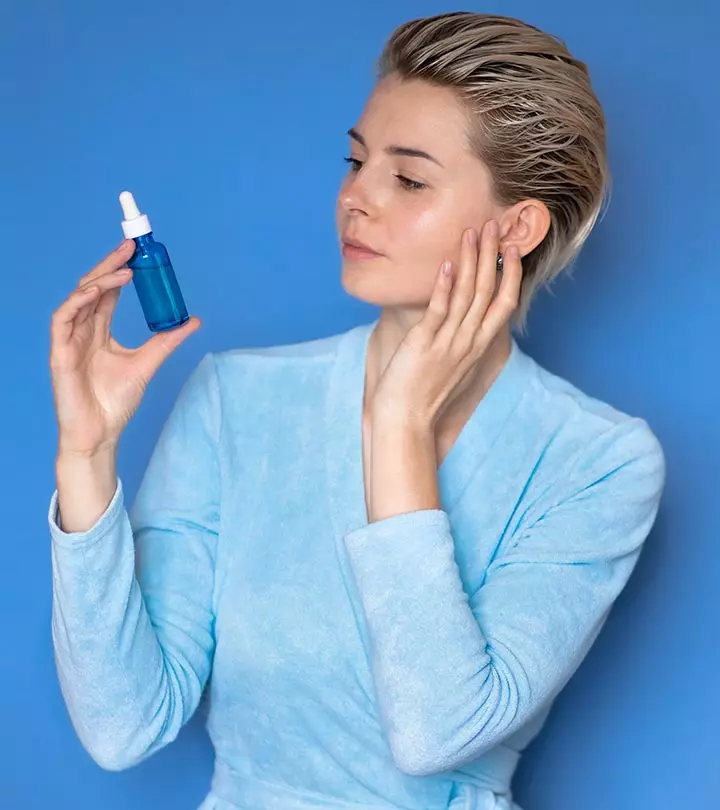
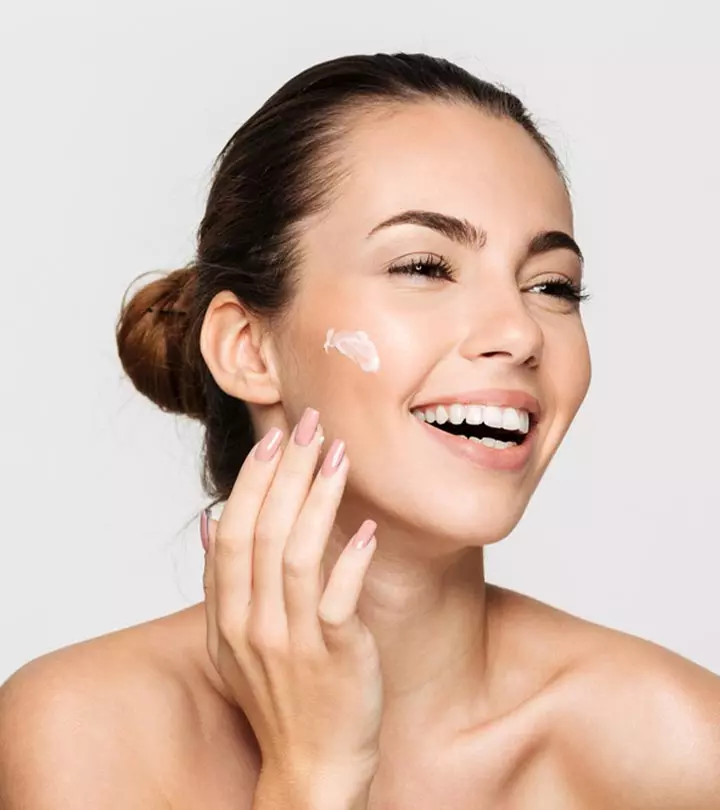
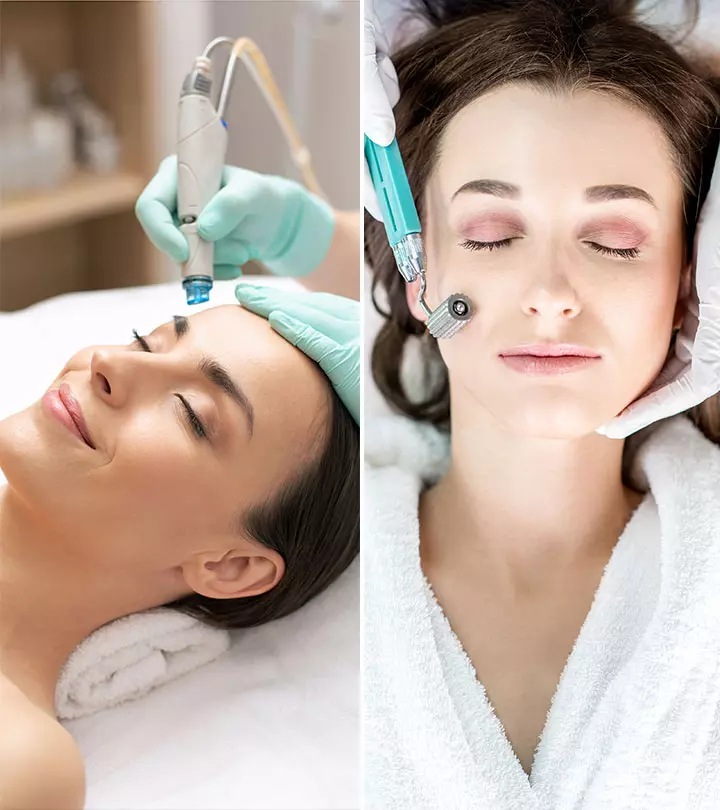
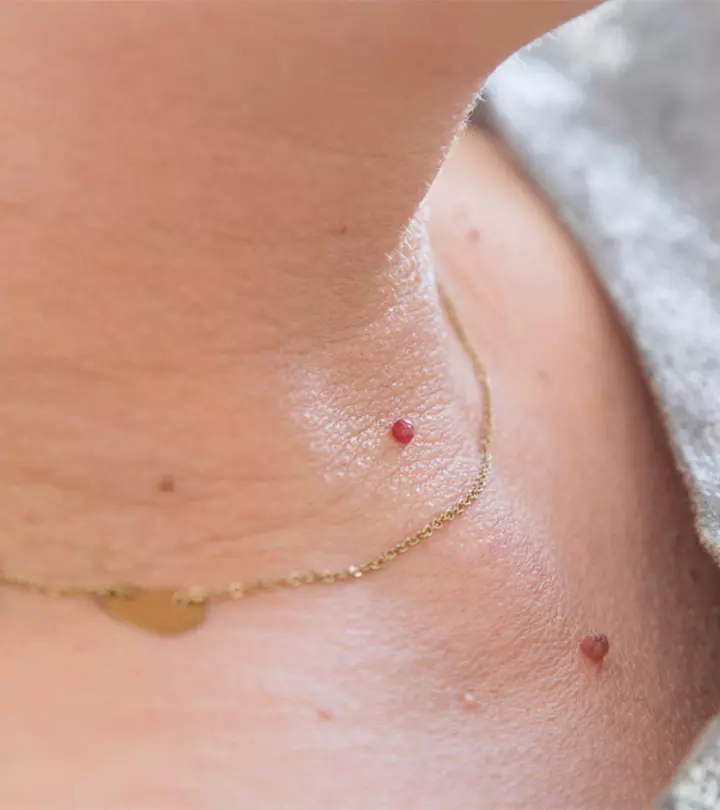
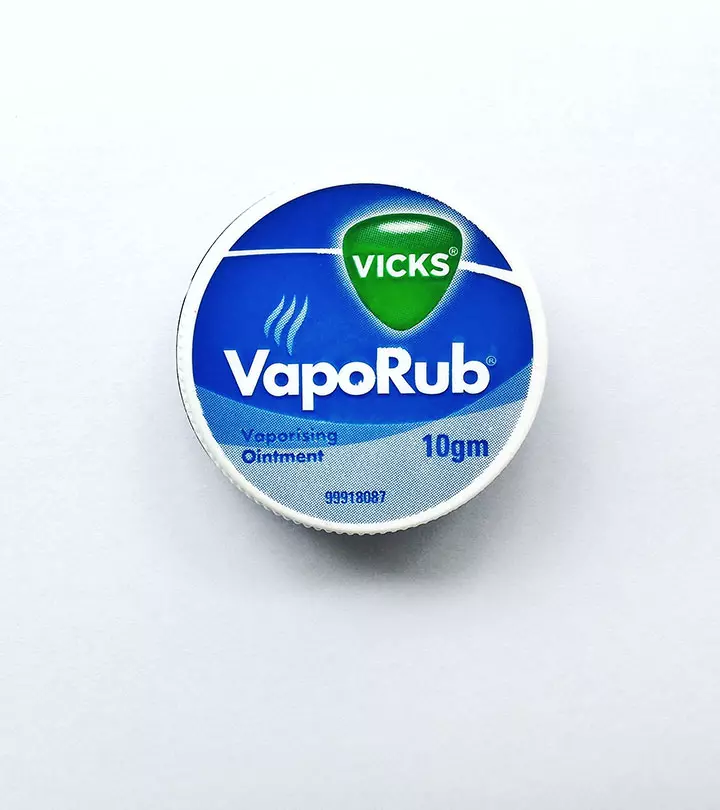
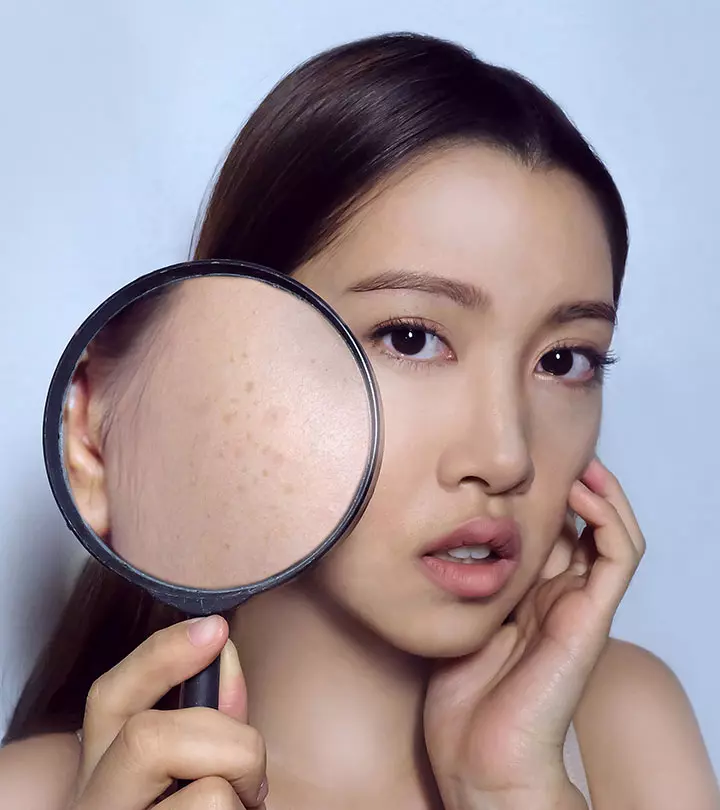
Community Experiences
Join the conversation and become a part of our empowering community! Share your stories, experiences, and insights to connect with other beauty, lifestyle, and health enthusiasts.